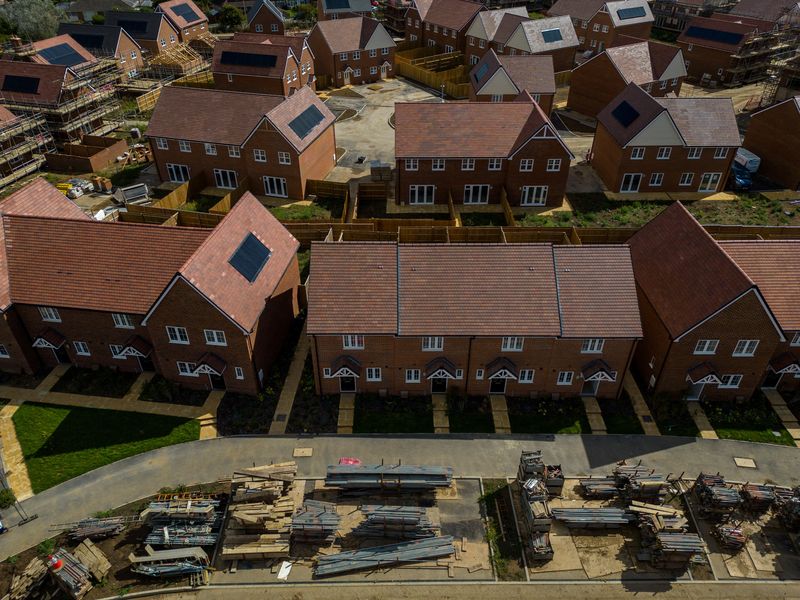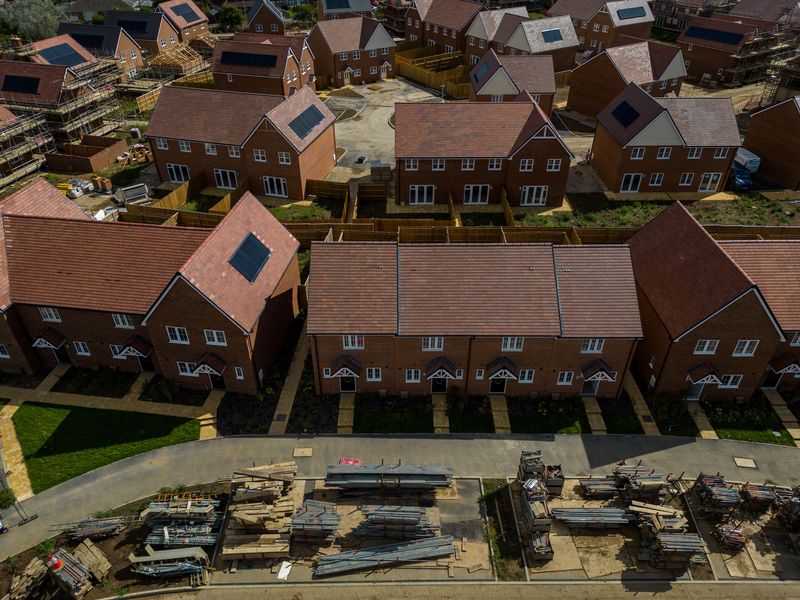
(Reuters) – Britain’s housing market strengthened further in November although uncertainty over the economic outlook could curtail activity in the months ahead, according to a survey on Thursday from the Royal Institution of Chartered Surveyors.
RICS’ monthly house price gauge jumped to +25 in November from +16 in October, its highest level since September 2022. A Reuters poll of economists had pointed to a reading of +19.
Mortgage lenders Nationwide and Halifax also reported a sharp pickup in house prices during November and Bank of England data showed lenders in October approved the most mortgages for house purchases since August 2022.
However, RICS said sales might slow next year as consumer and business confidence appeared to be weakening and markets had scaled back their expectations of BoE rate cuts, pushing up mortgage costs.
“Although the latest survey results continue to signal a steady improvement in buyer demand across the residential market, the broader macro environment is likely to pose additional headwinds moving forward,” RICS senior economist Tarrant Parsons (NYSE:PSN) said.
“The recent rise in mortgage interest rates may curtail the recovery in market activity before long, and this is reflected in the slightly less optimistic sales expectations data coming through this month,” he added.
Online property portal Rightmove (OTC:RTMVY) said on Thursday it was more positive about the outlook for 2025. It expected asking prices to rise by 4% in 2025, its highest prediction since 2021.
“We expect a busier year in 2025, with around 1.15 million transactions completed,” said Rightmove property expert Tim Bannister.
Increases to stamp duty land tax in April were likely to boost activity in the first half of the year, while further reductions in Bank of England interest rates are also likely to support the market, he said.
The BoE cut interest rates in November for only the second time since 2020 and said future reductions are likely to be gradual as it predicts the new government’s first budget will lead to slightly faster inflation and economic growth next year.

